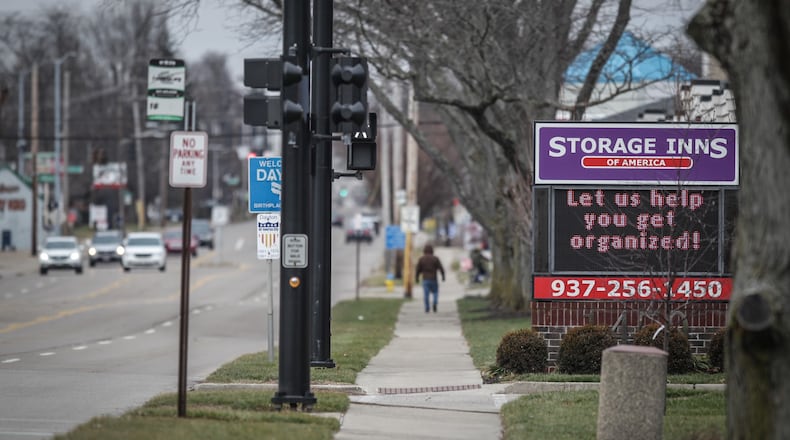Self-storage has been a strong-performing investment for business owners for the last 20 to 25 years, but the pandemic has added to the growth, said Thomas Gustafson, national director of Self Storage Group for Colliers International in Cleveland.
“Now, since COVID started in March, we’ve seen it be so strong,” Gustafson said. “In other words, it performed so well, and lenders will lend on this at some of the most aggressive rates for commercial real estate.”
Gustafson said the demand for these units is high because people need a place to store their stuff.
“America is so overproduced, that people have so much stuff, so much junk, they need to store it,” he said.
Steve Koewler, president of southeast business development for Miller-Valentine Group, said demand for self-storage rose after the pandemic. He said demand for self-storage usually peaks after a big life event, such as a divorce or a move. The pandemic forced college students off-campus and back into their family homes.
“One of our facilities is near the University of Tennessee in Knoxville, and when the pandemic hit, we were doing 100 new leases per month for students that had to vacate their premises on the campus,” he said.
Thomas Smith, owner of Storage Inns of America, which has locations across the Dayton area, has been in the business of self-storage for 35 years. He said the business has changed a lot during that time period. Most people rent online now, he said, and the storage facility doesn’t even see their customers until they move in.
At least three companies have announced plans to move storage facilities into the Dayton area in the last month: Cobblestone Capital at 2121 Harshman Road in Riverside; Larkspur Huber Heights at 7650 Waynetowne Blvd. in Huber Heights; and LDI Hospitality Management at 2455 Dryden Road in Moraine.
A one-year moratorium on self-storage facilities was approved by Centerville City Council this week after the city said it received significant interest in the building of additional units.
The city has about 18 acres of storage facilities in two industrial zoning districts and “these inquiries included consideration of potential rezoning of property for storage facility expansion outside of the city’s existing industrial districts,” Centerville records show.
“Storage facilities require large commitments of property, but they do not generate jobs or income tax revenue,” according to a memo from Centerville City Planner Mark Yandrick.
The one-year moratorium on planning and zoning permits for self-storage facilities will allow the city sufficient time to “review and recommend a comprehensive zoning regulation for self-storage facilities,” according to Centerville’s resolution.
In 2020, Smith said his company didn’t see a lot of people moving into the storage units he owns, but they also didn’t see many people moving out. He initially thought many people might end up defaulting on their payments for their storage units, he said, but that didn’t end up happening.
Koewler said Miller-Valentine is looking at places to invest in self-storage in Dayton. They recently looked a location in Bellbrook, he said, but that location didn’t work for them because of zoning laws.
Koewler said zoning laws can be a detriment for some projects as zoning hasn’t caught up to a modern idea of what self-storage is like, he said. Some of their projects look like office space, he said.
Dave Dickerson, president of Midwest business development at Miller-Valentine Group, said Dayton is a good market for self-storage because of the military population moving in and out of the city. But he said he also saw a potential for growth around downtown Dayton, where a lot of new development has popped up in recent years, and where empty-nesters and retirees may have gone after downsizing. He also sees potential around Austin Landing and The Greene.
Koewler said Miller-Valentine considers “micro markets” when deciding where to put any new self-storage projects. People like to be near their storage, so is there self-storage three to five miles from any given residential area and how much is there?
He added that there are also more developers and capital backing the self-storage industry than before. Previously, he said the business was run by people like Smith, who have a smaller operation, but now more developers are getting involved. But Koewler said self-storage was likely an under-saturated industry before, and recent additions of money and developers in the space have changed that.
“I personally think it’s been undersupplied for years and years and years,” Koewler said.


